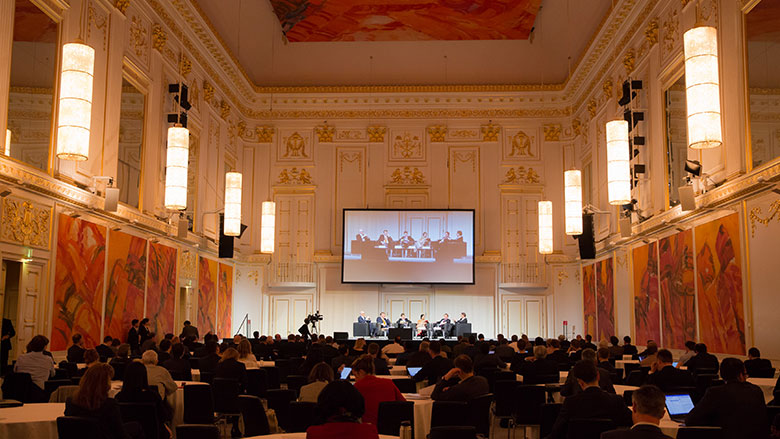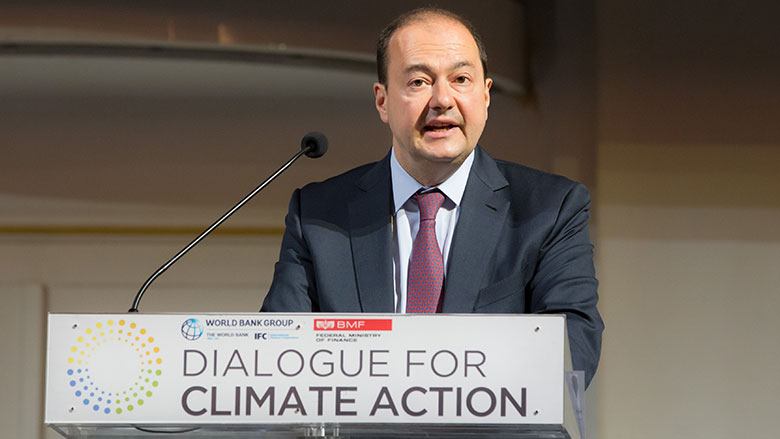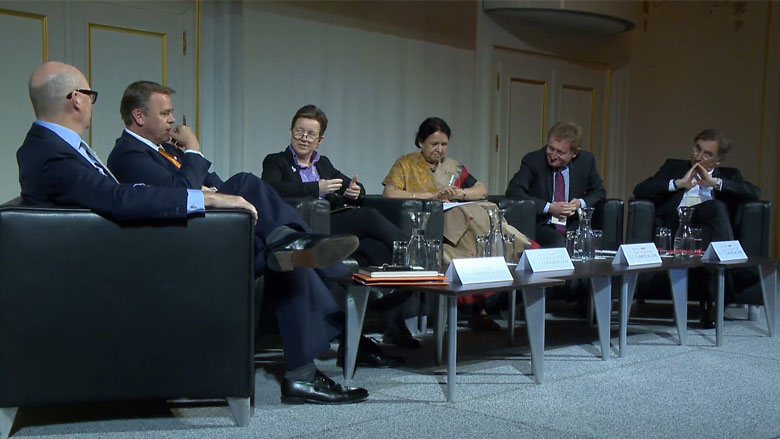With this need for collaboration as an impetus, The World Bank Group and 12 international partners launched the six Principles for Dialogue on Climate Action at the forum in Vienna. These principles guide discussions at the global, local and country level as governments and their private sector partners implement plans and identify solutions to help deal with this major global crisis.
The six principles provided a common backdrop for the speakers over the course of the event, who brought in diverse perspectives from their individual sets of expertise. Highlights included:
- John Rabe, Director of Sustainability at Siemens, who explained that Siemens’ investors are starting to see links between people, planet and profit.
- Prashant Mehra, Chief Architect at I Got Garbage, embodied the principle of inclusion as he described how thousands of citizens – ranging from waste pickers to office workers – are involved in his organization’s mission to collectively solve the problem of managing solid waste in the Indian city of Bengaluru.
- Andrew Laski, Executive Director of the Appliance Standards Awareness Project, illustrated the importance of energy standards for everyday items – such as household appliances – in the fight against climate change.
- Anna Swaithes, Director of Sustainable Development at SABMiller, explained the links between the beverage industry and climate change, through packaging, operations, access to water, and refrigeration.
- Andrea Fernandez, Director of Global Partnerships & Governance for C40 Cities Climate Leadership Group, discussed how mayors and local leaders can learn from one another.
- Abdelouahed Fikrat, General Secretary of the Moroccan Ministry of Environment, looked ahead to COP22 in Morocco, where the six principles have the potential to contribute significantly.
“No one can tackle climate change alone,” said Abdelouahed Fikrat. “The principles of dialogue hold potential to contribute significantly to the COP22 agenda and offer a tool to policymakers to engage the private sector. We need to build on the current momentum to speed up the implementation of concrete actions.”
The Principles for Dialogue on Climate Action form the basis of a concerted effort to foster well-conceived dialogues among public and private sector. Using the principles and its contributing members as a starting point, the Dialogue for Climate Action forum kicked off a community of practice that will carry out action on the climate change agenda and build on the momentum from COP21 and other global events.
“We expect this to be the start of a process that explores how industries are responding to the global climate challenge and in what ways we and partner governments can support their actions,” said Anabel Gonzalez, Senior Director of the World Bank Group’s Trade & Competitiveness Global Practice. “Industries have a significant role to play in climate change, and they need government to help them do what they do best – create, innovate, and scale.”
Cecile Fruman, a director in the Trade & Competitiveness Global Practice, closed the event by outlining the path ahead. “What we would like to see come out of this event is that there be uptake of the six principles, in-country dialogues within key institutions, and concrete actions that will be demonstrated at COP22 and beyond.”
The two-day Dialogue for Climate Action event included more than 200 participants from 25 countries. A recording of the event discussions can be found here.




